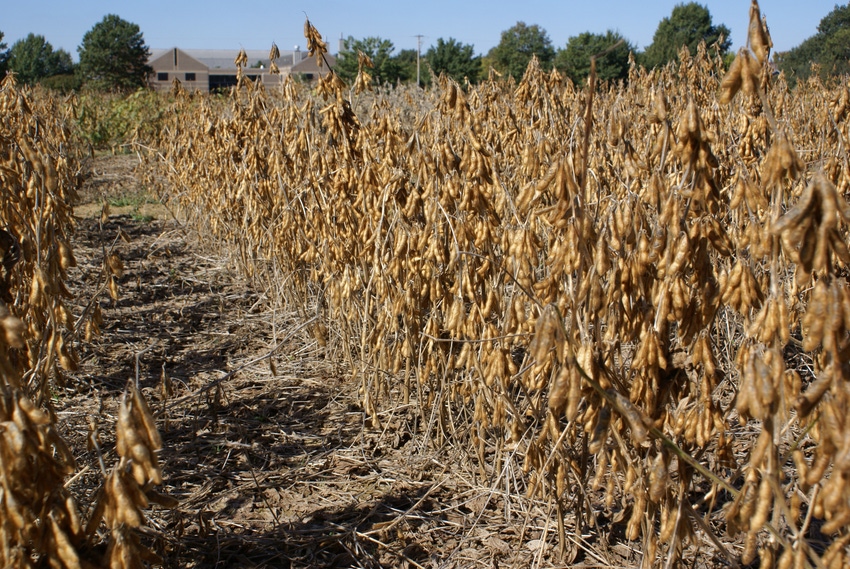April 2, 2014

The USDA has teamed with University of Tennessee AgResearch and the Missouri Agricultural Experiment Station to produce a new soybean germplasm line.
JTN-4307 is a conventional soybean that exhibits good yield potential and broad resistance to multiple soybean cyst nematode populations, including reniform nematodes and Southern root knot nematode. The new line also provides resistance to fungal diseases, especially Frogeye leaf spot (FLS), stem canker and charcoal rot.
“The combination of resistance to numerous nematodes and fungal pathogens along with good yield potential makes JTN-4307 an excellent choice for parent material in breeding programs,” says participating researcher Prakash Arelli, USDA Agricultural Research Service. “It could also be a strong conventional soybean for Mid-South producers.”
Based on data averaged across 28 locations from 2008 to 2012 (except 2011) in the USDA Uniform Soybean Tests, JTN-4307 produced 48.4 bushels per acre. In the Tennessee Soybean Variety Performance Tests in 2012, JTN-4307 produced seed yields of 55 bushels per acre.
JTN-4307 is resistant to SCN Races 2, 3 and 14; FLS, reniform nematode and stem canker. It exhibits moderate resistance to charcoal rot as well as Phomopsis Seed Decay under normal harvesting conditions. Currently, soybean cultivars with combined resistance to SCN, FLS and other fungal diseases are not readily available.
Participating researchers from Tennessee include Fred Allen, director of variety trials for the UT Institute of Agriculture, along with Arelli and Alemu Mengistu, both of the USDA-ARS, Crop Genetics Research Unit located at the West Tennessee AgResearch and Education Center in Jackson.
Seed of this release will be deposited in the National Plant Germplasm System where it will be available for research purposes, including development and commercialization of new cultivars. It is requested that appropriate recognition be made if this germplasm line contributes to new germplasm or cultivars. Arelli can be contacted for more information at: [email protected]
You May Also Like




